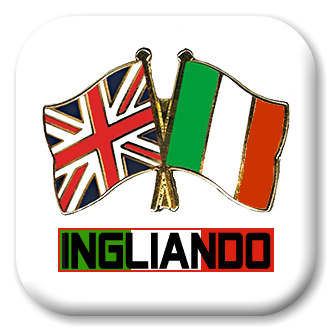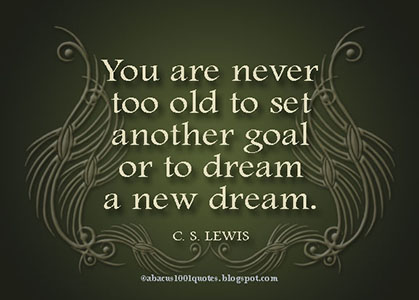“How old are you?” è sicuramente una delle domande più conosciute in inglese anche per chi l’ha studiato poco o niente, quindi non ha bisogno di grandi presentazioni. Però ci dà lo spunto per alcune considerazioni utili e importanti. La prima di queste è abbastanza elementare ma la ripassiamo per chi è ancora agli esordi con la lingua inglese.
Essa consiste nella formulazione della risposta alla domanda “How old are you?” perché, come avviene spesso, l’influenza della madrelingua italiana ci porta facilmente a sbagliare. Innanzitutto, bisogna fissare bene in mente il fatto che l’età in inglese si esprime con il verbo essere (to be) e non con il verbo avere (to have) come avviene in italiano. Facile, no? Ma attenzione che si dimentica anche facilmente. In effetti con la domanda, “How old are you?” non chiediamo “Quanti anni hai?” ma “Quanto vecchio sei?” Ecco perché si usa il verbo essere. Quindi anche la risposta utilizzerà il verbo essere in quanto la nostra risposta dovrebbe prendere la forma di “Sono 23 anni vecchio” ovvero “I am 23 years old.”
In inglese molto spesso questa risposta viene accorciata a “I am 23” perché il significato del numero 23 in questo contesto è piuttosto evidente e le parole “years old” possono rimanere di conseguenza sottintese.
Invece l’errore che si fa spessissimo è quello di rispondere “I’m 23 years” oppure, peggio, “I have 23 years.” Entrambi questi errori sono causati dall’influenza della madrelingua dove si usa il verbo avere per esprimere l’età e dove la parola anni viene espressa nella risposta “Ho 23 anni” ma non la parola vecchio. In inglese, come già detto, si usa il verbo essere e, poiché le parole “years old” sono inseparabili, o si mettono tutte e due o si tolgono tutte e due, lasciando solamente il numero.
Bene. Passiamo alle altre, più interessanti, considerazioni.
La combinazione, “How + aggettivo” all’inizio di una frase o di una domanda non si limita a “How old” ma è molto sfruttato per formulare tante frasi e domande simile, alcune delle quale sono diventate anche famose:
- How sweet it is (to be loved by you) ~ Quanto è dolce essere amato da te (canzone di Marvin Gaye, 1965, poi cantata anche da James Taylor)
- How wonderful life is now you’re in the world ~ Quanto è meravigliosa la vita adesso che ci sei tu nel mondo (canzone “Your Song” di Elton John, 1969)
- How deep is your love? ~ Quanto è profondo il tuo amore? (canzone dei Bee Gees, 1977)
- How far can you fly? ~ Quanto lontano puoi volare? (composizione di Luca Flores, 1995)
- How long has this been going on? ~ Da quanto tempo (questo) va avanti così? (album di Van Morrison, 1996)
- How strong do you think I am? ~ Quanto forte pensi che io sia? (canzone do Alexz Johnson, 2006)
La formula può essere usata sia in forma affermativa (esempi 1 e 2) che in forma interrogativa (esempi 3, 4, 5 e 6), ma attenzione ad invertire il soggetto e l’ausiliare SOLO quando si tratta della forma interrogativa.
Vediamo qualche esempio più comune:
- How big is Bob’s house? ~ Quanto è grande la casa di Bob?(forma interrogativa)
- I don’t know how big Bob’s house is. ~ Non so quanto è grande la casa di Bob. (forma affermativa)
- How tall is Bob’s brother? ~ Quanto è alto il fratello di Bob? (forma interrogativa)
- I can’t remember how tall Bob’s brother is. ~ Non mi ricordo (non riesco a ricordare) quanto è alto il fratello di Bob. (forma affermativa)
- How difficult is the exam? ~ Quanto è difficile l’esame? (forma interrogativa)
- Nobody knows how difficult the exam is. ~ Nessuno sa quanto è difficile l’esame. (forma affermativa)
La formula quantitativa “how + aggettivo” può essere estesa anche ai sostantivi grazie all’inserimento degli aggettivi quantitativi “generici” much e many che fanno da legame tra “how” e il sostantivo in questione. Attenzione che much si usa con i sostantivi non-numerabili e many con i sostantivi numerabili:
- How much milk is there in the fridge? ~ Quanto latte c’è nel frigo? (latte = non-numerabile)
- How many students are there in your class? ~ Quanti studenti ci sono nella tua classe? (student = numerabile)
- How much time have we got? ~ Quanto tempo abbiamo? (tempo = non-numerabile)
- How many times have you seen this film? ~ Quante volte hai visto questo film? (volta = numerabile)
- How much sugar did you buy? ~ Quanto zucchero hai comprato? (zucchero = non-numerabile)
- How many tickets did you sell? ~ Quanti biglietti hai venduto? (biglietto = numerabile)
Infine ci sono delle espressioni idiomatiche che usano la formula how + aggettivo però più con il senso esortativo di che che con quello quantitativo di quanto:
- How boring. ~ Che noia.
- How strange. ~ Che strano.
- How wonderful. ~ Che meraviglia.
- How kind of you. ~ Che gentile da parte tua.
- How sweet of her. ~ Che dolce da parte sua.
- How thoughtful of them. ~ Che premuroso da parte loro.
- How lovely to hear from you. ~ Che bello ricevere le tue notizie. (tipico di una lettera scritta)

Your comments are always very welcome.




How terrible it is to love someone that death can touch! ( Something can’t be touched by death, isn’t it?)
LikeLike
Your question should be: “Something can’t be touched by death, can it?”
The answer is yes, because in this case the expression “to be touched by death” is simply a poetical way of saying “to die”.
LikeLike
Thank you, teacher, for your explanation. I noticed I had made the mistake saying “isn’t it?” instead of “can it?” just after sending the message, as I do too often!! Undoubtedly, I need to strengthen my confidence in English. A little bird told me that hopping up from the intermediate into the competent level is the most arduous task. Which is your experience? Thanks.
LikeLike
I think that up to the intermediate level it is mostly a question of learning all the basic structures and vocabulary. Once you get beyond this level it becomes a question of putting into practice what you have learnt and honing your skills, and realising how idiomatic English really is! So, yes, becoming a truly competent speaker takes time and requires constant practice! Howver, it is possibly also the most rewarding stage. 🙂
LikeLike
Merry Christmas and happy new year .
LikeLike
of course…thank you very much
LikeLike
dubbio: perche con sweet,terrible, usiamo it e con wonderful e deep viene omesso?
LikeLike
“It” serve quando manca un soggetto.
How wonderful LIFE is…
How deep is YOUR LOVE
LikeLike
ok …grazie per la correzione!!
per quanto riguarda il “COME” :esso differenzia proprio gli individui gli uni dagli altri..(uomini grandi-mediocri-gretti smidollati-ecc..)ma credo che questo non sia il giusto contesto per “filosofeggiare”.. 😉
LikeLike
At least we should “philosophize” in English and not in Italian, eh?
LikeLike
It is true!! but we don’t want think about..
invece la grandezza dell’uomo consiste proprio nel poter pensare ed essere cosciente di ciò che vive…
LikeLike
La grandezza dell’uomo dipende, forse, più da come pensa e da come usa la sua coscienza.
N.B.
[…we don’t want to think about it…]
LikeLike
“” how terrible it is to love something that death can touch “”
THIS SENTENCE IS WORRYING!! HOWEVER IT IS TERRIBLY TRUE..
LikeLike
Terrible indeed, but we must always remember that it is death that gives true value to life, and love.
LikeLike